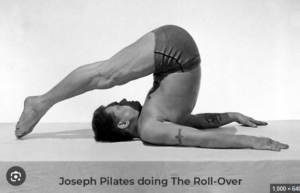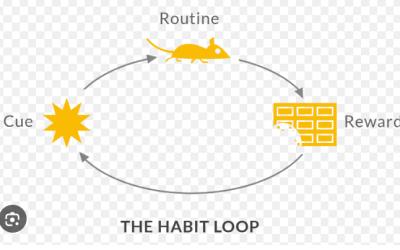”I’m totally stressed”
They released new figures this week in Ireland that were worthy of radio time. Apparently stress levels here have doubled between 2010 and 2015. A debate ensured as to whether people have become snowflakes in general, or whether we should just get over ourselves and develop some resilience. A pertinent point was made that being busy has become the modern way of life, and so stress will go hand in hand with that.
Busyness – a yardstick for success
I largely agree with the last point. I have written on how our new measurement for success is how busy we are. It is such a loaded question to be asked ‘Are you busy?’ In that seemingly casually asked question, there is a whole load of judgement. If I say that yes, I am very busy, up the walls in fact, so busy I haven’t time to sit down to a meal, or see my family, then the question-asker assesses that things must be going very well for me and that I must be very successful in my work. It is a positive thing to be too busy with our for living the rest of our life. It is a measure of our success in this modern gauntlet that is life lived on high speed.
And so we say yes, even if it is not entirely true. We fake it till we make it, for to admit to not being that busy at all is to admit to being a failure at your own life. We clearly don’t have what it takes to be at the pace required to succeed. We mustn’t be very good at what we do, god love us. Maybe we don’t have the drive or ambition, or maybe we’re doing the wrong thing and should really thing about a career change so that we can join the rest of the busy population who are running around like hare’s on red bull, obviously getting the point of life much better than us.
Stress as a badge of honour
When we believe collectively that the way our modern life works is that it runs on busy, then of course stress is going to go hand in hand with this always-on, slightly-panic pace. And when we use the level of busyness as a measuring tool for how successful a person is, then to be stressed becomes acceptable, in fact even more it becomes a badge of honour. I am stressed, therefore I must be busy. I am busy, therefore I must be successful. We wear this badge of stress with a degree of pride. It pleases us to be able to tell others that we are so stressed by our workload, by how much we have to do and how little time we have to do it. We feel like we are getting it right, this modern life. We freely admit to being stressed.
Stressed or lonely?
What we don’t freely admit to, and what I believe is entangled in that recent ESRI report on stress level increase, is loneliness. People are lonelier today than they have ever been. Doctors report that loneliness may be a more grave danger to our health than obesity and smoking. The UK have appointed a Minister for Loneliness. A US research study found that between 20-43% of the population feel ‘’frequent or intense’’ loneliness. Other research suggests that the more social networks you have, the more intensely lonely you feel. Seems ironic right? We have never been more connected to one another, and yet we are seeing that we are also more chronically socially isolated and disconnected from one another.
Technology has allowed us to do amazing things, and when used as a tool to make our lives easier and more efficient, it is a wondrous thing indeed. But when we use technology to replace our conversations, our human interactions, our face to face communications, then technology begins to have a negative impact. And I believe we are seeing this negative impact most powerful in our own wellbeing and our relationships with others.
When we replace conversation with digital communication, we remove the humanising element of human interaction. And we need this human interaction. We are social animals, us human beings, and from the very beginning of our evolution we have needed social interaction to survive and thrive in the world. When we take this emotional connection element away from communication, we begin to feel disconnected, lonely, and socially isolated.
And so this is why I believe those figures on stress may be somewhat skewed. Because I believe that at least some of those figures reflect loneliness, not stress. People are becoming chronically lonely and isolated in this hyper-connected, busy world. But it is not yet socially acceptable to admit to being lonely. It has its own stigma attached to it. We think of lonely people as ‘’Billy no mates’’, and we pity them, for their lack of friends. We attach a kind of loser element to being lonely. The implied thinking is that there must be something wrong with someone who can’t make friends, they must be a bit weird or odd.
“I see patients who say they’re depressed, but when they explain what’s really bothering them, in many cases they’re not depressed at all,” says psychiatrist Richard Schwartz. “They’re lonely, but haven’t labeled it that way.
Lonely in a hyper-connected world
But here’s another irony: lonely people often are surrounded by people in their lives. They have many social networks, many colleagues at work that they know, many acquaintances that they can drop a text to, friends and family that they love but don’t get to see often. What makes us lonely is not a lack of people in our lives per se, but a lack of intimacy, of emotional connection, or pure, unadulterated human interaction that is eyeball to eyeball and tactile.
And so we are lonely, but it’s not cool to admit that, so instead perhaps we admit to being stressed, because being stressed is totally fine, in fact encouraged, and a badge of honour and an indicator of success.
We need to take this rising epidemic of loneliness seriously. We need to de-stigmatise it, and publicly address it. Because loneliness is a killer, quite literally. But before it will kill you, it will eat away at you, chip away at your wellbeing, negatively impact your relationships, and make life quite a bleak place to be.
We need to talk …
We need to have a conversation about loneliness, and what we can do to combat this new social ill that is pervading our busy, modern lives. I don’t think conversation can cure everything, but I absolutely believe that if we were making more time in our days to have face to face conversations with one another, about everything and nothing; if we were prioritising community spirit, in the neighbourhood, in the workplace; if we could stop being so busy and start to see one another, and make time for one another, and be there for one another; then we could go a long way to addressing the desperate loneliness that is pervading our society, and making us ill.
‘’Just like being physically active, we need to be socially active.’’
Reaching out, in the smallest of ways, can have a positive effect on combating loneliness. Oprah ran a ‘Just say Hello’ campaign. It is a simple greeting, but the positive impact of it can be profound. Eye contact is another small and simple gesture but leads to deeper, more meaningful relationship building. Science tells us that small and simple daily interactions are important to enable us live happy and healthy lives. So let’s start small, and seek to have a big impact.



